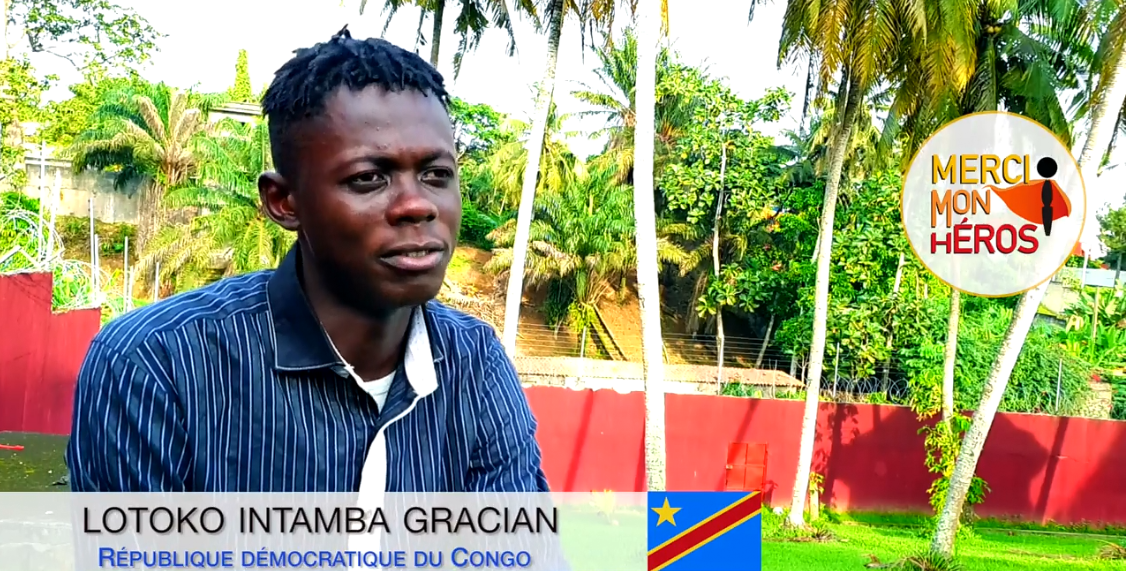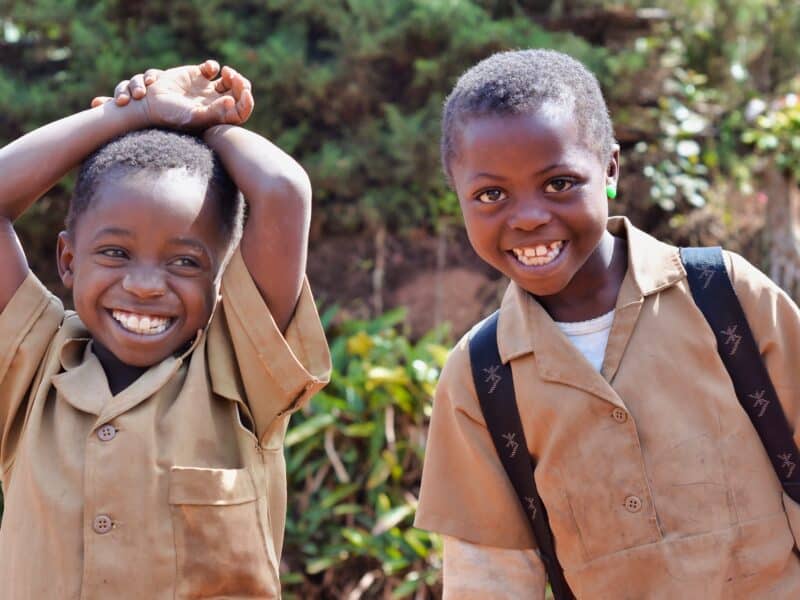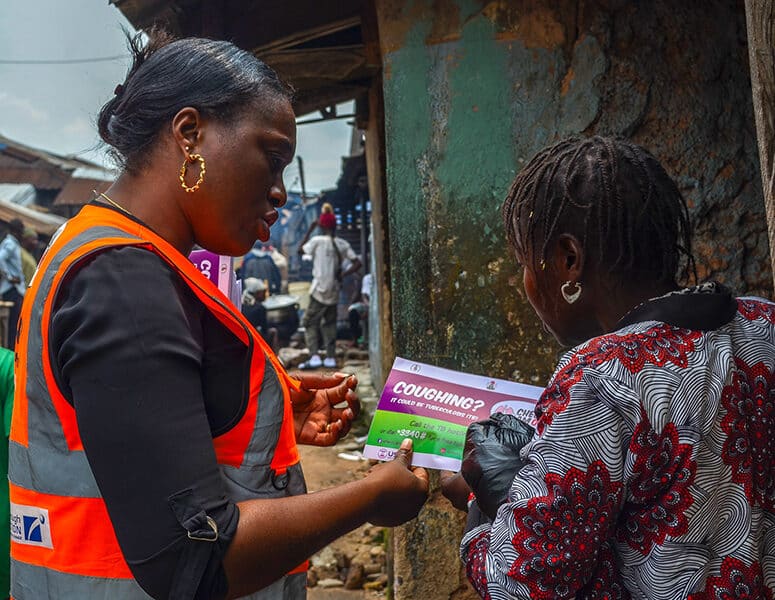“I almost risked my life,” says Florence N’Tsougan, a teenager in Togo.
She is appearing in a video as part of the Merci Mon Héros campaign, thanking a friend for having a candid conversation with her about the risks of unprotected sex.
Too often, strict social and cultural norms mute young people’s voices in their own reproductive health, all but forbidding them to talk or ask about family planning, relationships, menstruation and more. To help youth in francophone Africa challenge these norms, the Johns Hopkins Center for Communication Programs’ Breakthrough ACTION project is supporting the youth-led multi-media campaign Merci Mon Héros.
Through Merci Mon Héros (which means “thank you, my hero” in French), young people are producing videos that thank their parents, sisters, friends and others who helped them through specific challenges in their reproductive health experiences. By sharing these experiences, the idea is to foster empathy for youth among adults in particular. It is also meant to encourage adults to break taboos and reach out to young people in their lives to talk about reproductive health and family planning.
The campaign was conceived at the 2019 Francophone Summit for Social and Behavior Change’s Youth Design Challenge, organized by CCP and the Ministry of Health and Public Hygiene of Côte d’Ivoire. The contest tasked young attendees with developing ideas to engage youth in reproductive health. “This particular idea gained traction because it gave young people the opportunity to really have a voice in their own reproductive health,” says CCP’s Erin Portillo, MPH, a senior program officer and Merci Mon Héros advisor.
With Breakthrough ACTION’s support, the campaign is led by young people from 10 different countries. It has been broadcast on TV and radio in at least nine countries in francophone Africa and has enjoyed a broader reach through Facebook, Twitter, Instagram and other mobile platforms. In Mali, for example, Merci Mon Héros’ message has been promoted through more than 21,000 text messages and a WhatsApp group for 250 youth, in addition to being broadcast on TV and radio stations popular with youth and adults throughout the country.
The campaign has opened up a new space for inter-generational conversation on sensitive reproductive health topics. “Let’s break the taboos,” says Lotoko Intamba Gracian, a young person from the Democratic Republic of the Congo who thanked his mother in his video. “There is no shame in preparing your children for their future.”
Another storyteller, Kambou Sie Serge, recalls a conversation he had with his hero, his father, when Serge was caught writing a love letter to a female friend. “[My father] started asking me questions: What are my goals? What do I plan to be in life?” His father prompted Serge to consider the consequences of having sex before he took stock of his health and life goals. In another video, a young woman named Mariette Montcho shares the emotional experience of her first period. Afraid and embarrassed, Mariette ran to her sister who reassured her that everything she was going through was a normal part of growing up. More Merci Mon Héros episodes can be found here.
These personal stories have touched hundreds of lives. “Hearing all these stories gave me a broader understanding of the reproductive health problems young people face,” says Didier Gnahoré, one of the youth campaign managers. “Now, I’m fully committed to Merci Mon Héros.”
To help spread young people’s messages even further, the campaign hosted a design and production workshop in Abidjan, Côte d’Ivoire, that reinforced attendees’ storytelling skills.
Empowered with filming, interviewing, editing and project management skills, young people gained new ownership and confidence in their ability to craft a message to support their ideas, their health and, ultimately, their lives.
“Now they’ve got new ways to talk about their experiences,” Portillo says.





